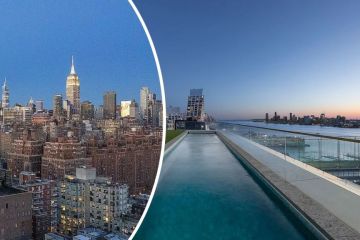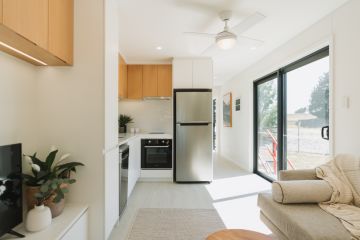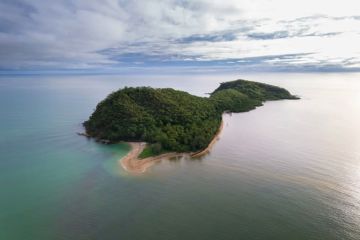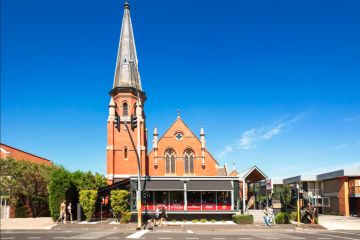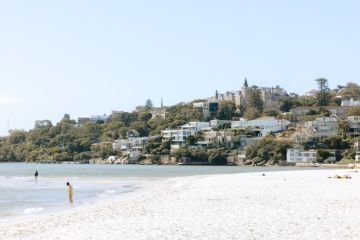Ciao bella: This cluster of hillside villas are for sale in Sardinia for a whopping price
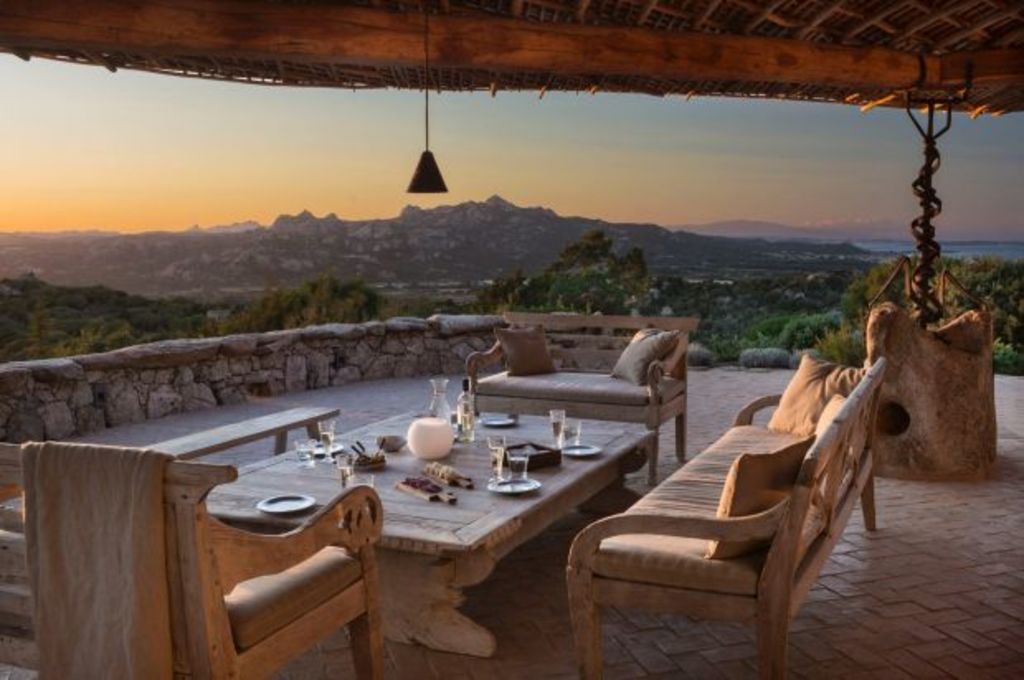
Before Sardinia shot to fame as one of world’s most glamorous holiday destinations, the area was dotted with traditional shepherd’s sloped-roof houses, known as stazzi.
The owner of a 7.5-hectare estate on the Costa Smeralda (Emerald Coast) drew inspiration from these historic dwellings to create an idyllic retreat made up of six separate residences packed to the rafters with rustic elegance.
La Garibaldina Costa Smeralda is set into the hillside near the village of San Pantaleo, a tiny outpost in the hills above the island’s bustling north-eastern coastline.
Hand-made terracotta tiles add an artisan touch inside and out; ceilings and floors are finished with reclaimed wood, and other architectural pieces have been cherry-picked from dealers on the Italian mainland.
La Garibaldina is listed through Christie’s International Real Estate affiliate ImmobilSarda, with hopes of offers in the region of €18 million to €22 million ($27.7 million to $33.9 million).
Current market
Julia Bracco, an agent at ImmobilSarda, says Sardinia’s most popular properties boast traditional Mediterranean flair with a lifestyle to match.
“This includes the utmost privacy, stunning waterfront location or sea views and the immersion of nature,” Bracco says. In Costa Smeralda’s swankiest neighbourhoods, security, privacy and high-end amenities are prized.
- Related: What $7m buys you in Rio
- Related: This converted ticketing office defies belief
- Related: The mysterious beach-house worth millions
Bracco says the prestige market has performed well, with demand driven by the safety, location and international allure of the Costa Smeralda brand.
Many buyers are wealthy northern Europeans seeking a second or third holiday home.
“In recent years, even Italian customers are reconsidering Costa Smeralda as a source of a good real-estate investment and this trend is expected to continue in 2018 to 2020.”
Can Australians buy in?
Australians are free to buy property in Sardinia. The taxes due depend on whether the vendor is a company, in which case nine per cent of purchase price is payable, or an individual, meaning nine per cent of the medieval-sounding “cadastral” value is due.
Cadastral value is determined by property size. Non-residents will need an Italian tax-file number. Local property tax is levied twice a year.
For non residents selling within five years of purchase, capital-gains tax reaches an eye-watering 20 per cent.
What you can buy for …
$49 million

Villa Guttuso. Photo: Christie’s International Real Estate
Villa Guttuso, a waterfront estate on the Punta Volpe peninsula. The six-bedroom home is decorated with frescoes by Sicilian artist Renato Guttuso.
$38 million

A four-hectare private island. Photo: Christie’s International Real Estate
A private island near Porto Rotondo. The island covers four hectares, with properties including a three-bedroom house and two guest suites.
$1.85 million

A lavish double-bedroom apartment. Photo: Christie’s International Real Estate
A furnished two-bedroom apartment on the first floor of a block overlooking Porto Vecchio marina. Marble and terracotta add rustic elegance.
We recommend
We thought you might like
States
Capital Cities
Capital Cities - Rentals
Popular Areas
Allhomes
More
